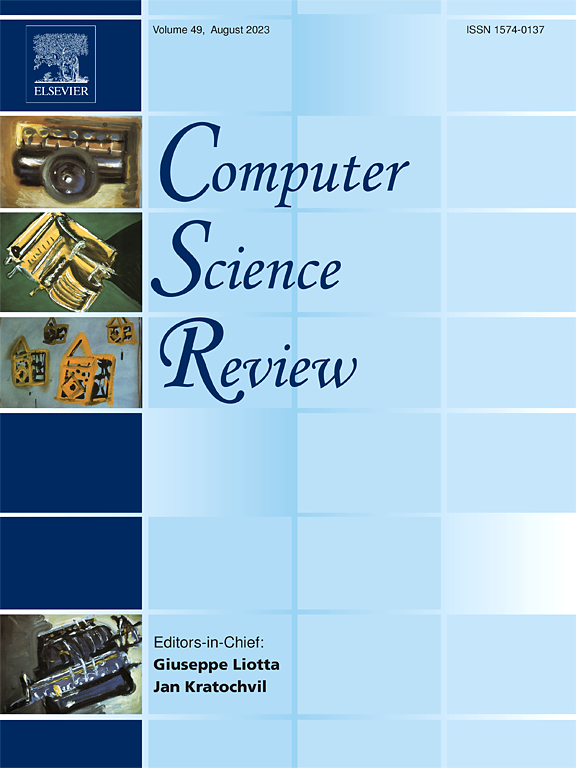使用威胁情报减轻对物联网设备的勒索软件攻击的概念框架:系统的文献综述
IF 12.7
1区 计算机科学
Q1 COMPUTER SCIENCE, INFORMATION SYSTEMS
引用次数: 0
摘要
由于低功耗嵌入式设备和互联网技术的发展,医疗物联网(IoMT)设备的使用量增加。IoMT设备将医疗数据存储在内部设备(如安全数字(SD)卡、只读存储器(ROM))和外部设备(如私有、公共和混合云服务器)上。物联网设备、web和应用程序服务以及医疗数据容易受到网络攻击。然而,由于家庭诊断设备的使用增加,勒索软件对物理和存储设备等IoMT设备的攻击也在增加。现有的网络攻击框架、方法、算法和网络弹性无法检测、预防和减轻新的勒索软件变体。基于勒索软件变体的IoMT设备攻击每天都在迅速增加。由于获取不同类型和结构的医疗数据,勒索软件变体检测在IoMT设备中具有挑战性。本系统文献综述(SLR)回顾了现有的检测不同勒索软件变种攻击的方法和框架。在本SLR中,分析了2014年至2025年期间发表的154篇关于勒索软件攻击检测和预防方法的研究文章。以上文章均被Scopus检索和SCI(科学引文索引)收录。本文对网络攻击变异检测方法进行了探讨。从这一综述分析,提出了一个概念性的鲁棒可靠自适应和综合(RRAC)框架,用于识别研究空白,即IoMT设备中的勒索软件变体检测。提出的RRAC框架基于态势感知参考模型(SARM)和MITRE att&ck,并使用模糊粗糙集理论、图论、GenAI和威胁情报对IoMT设备中的勒索软件变体进行检测。本文章由计算机程序翻译,如有差异,请以英文原文为准。
A conceptual framework to mitigate ransomware attacks on IoMT devices using threat intelligence: a systematic literature review
Internet of Medical Things (IoMT) device usage increases due to the development of low-power embedded devices and internet technologies. IoMT devices store medical data on internal devices such as Secure Digital (SD) card, Read Only Memory (ROM), and external devices such as private, public, and hybrid cloud server. IoMT devices, web and application services, and medical data are prone to cyberattacks. However, Ransomware attack on IoMT devices, such as physical and storage devices are increased due to increase usage of home diagnostic devices. Existing cyberattack frameworks, methods, algorithms, and cyber resilience fail to detect, prevent, and mitigate novel ransomware variants. The ransomware variant based attacks on IoMT devices rapidly increases on daily basis. Ransomware variant detection is challenging in IoMT devices due to acquisition of different types and structure of medical data. This Systematic Literature Review (SLR) reviews the existing methods and framework for detection of different ransomware variant attacks. In this SLR, 154 published research articles were analyzed from 2014 to 2025 on ransomware attack detection and prevention methods. The above articles are Scopus indexed and Science Citation Indexed (SCI). This SLR explore towards cyberattack variant detection methods. From this review analysis, a conceptual Robust Reliable Adaptable and comprehensive (RRAC) framework is proposed for the identified research gap, i.e., ransomware variant detection in IoMT devices. The proposed RRAC framework is based on Situational Awareness Reference Model (SARM) and MITRE ATT&CK and uses Fuzzy Rough Set Theory, Graph Theory, GenAI, and Threat Intelligence for ransomware variant detection in IoMT devices.
求助全文
通过发布文献求助,成功后即可免费获取论文全文。
去求助
来源期刊

Computer Science Review
Computer Science-General Computer Science
CiteScore
32.70
自引率
0.00%
发文量
26
审稿时长
51 days
期刊介绍:
Computer Science Review, a publication dedicated to research surveys and expository overviews of open problems in computer science, targets a broad audience within the field seeking comprehensive insights into the latest developments. The journal welcomes articles from various fields as long as their content impacts the advancement of computer science. In particular, articles that review the application of well-known Computer Science methods to other areas are in scope only if these articles advance the fundamental understanding of those methods.
 求助内容:
求助内容: 应助结果提醒方式:
应助结果提醒方式:


